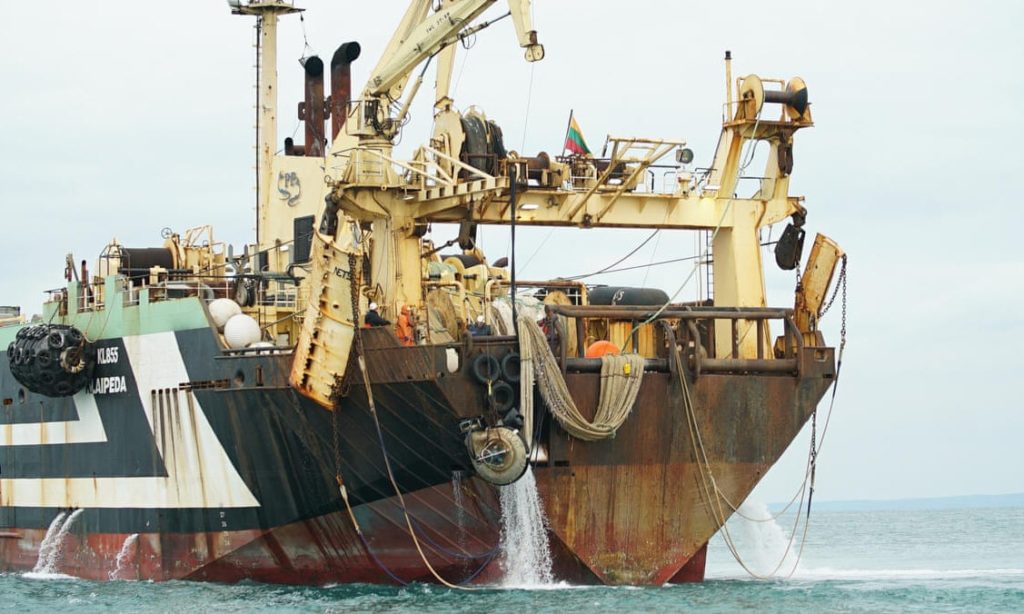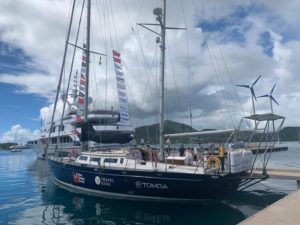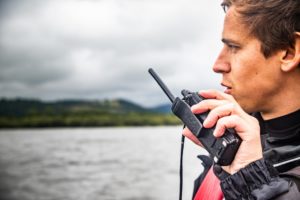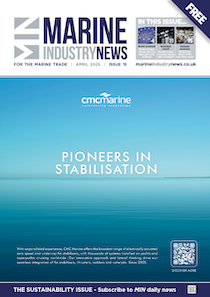Is Brexit an ‘opportunity to ban supertrawlers from UK waters’?

Brexit offers the perfect opportunity to ban industrial supertrawler fishing boats from UK waters, according to campaigners.
The factory-sized ships can be hundreds of feet long and have been criticised for indiscriminate fishing as they catch hundreds of thousands of fish in relatively short periods. Environmentalists fear their presence correlates with spikes in numbers of dolphins washing up dead according to The Guardian.
Use of the ships is heavily regulated in some countries, as trawling has been criticised for the physical damage it inflicts on seabeds, but under the common fisheries policy, EU-registered vessels are legally entitled to fish in UK waters, subject to licence conditions, quota allocation and relevant fishing restrictions.
Campaigners fear supertrawlers are incompatible with sustainable management of fisheries and argue that the UK’s departure from the EU presents an opportunity for a new approach, as fishing rights to British waters are up for review.
“Our government likes to boast about its credentials as a global oceans champion, but what about protecting our seas here at home?” said Chris Thorne, Greenpeace’s oceans campaigner.
“Ministers should take a long, hard look at whether allowing supertrawlers to operate in UK waters is compatible with sustainable management of our waters, as well as investigating the impact of the UK’s industrial distant-water fleet in other countries’ waters.”
Calls for a ban on supertrawlers were made last year when the Lithuanian-registered Margiris – a 142-metre (465ft) boat with a deadweight of 6,200 tonnes, once considered the second largest in the world and banned from Australian waters – spent time off the south coast of England.
According to analysis by Greenpeace, Margiris was fishing in an area of the Channel designated by the government as a marine conservation zone. However, the government said it was monitored closely and no infringements were found.
The overall number of voyages in UK waters by supertrawlers each year is unclear. One ship, the Kirkella, based in Hull, can catch 2.3 million fish on every two-month voyage but it is far smaller than Margiris.
Conservationists claim that anecdotal evidence suggests the ships wreak havoc on sea life.
“It’s just been a long stream of dolphin deaths, I have never seen anything quite like it,” says John Hourston, from the Blue Planet Society. “We have had several storms, but dolphins do not die because of weather, they are great swimmers.”
He believes the evidence points to supertrawlers being responsible for an increase in stranded dolphins off the Sussex coast and the west of Ireland, but that scientific study is needed to incontrovertibly prove the link.
“We have just got mass dolphin die-offs and mass fishing fleets and the two correlate, but we need more evidence.”
At the very least, he says, these ships should be fitted with CCTV cameras or have independent observers on board to monitor which fish are being caught.
“I am not talking about the inshore fishermen, I am talking about the industrial supertrawler fleets,” he says. “We should not be allowing supertrawlers in British waters.”
French campaigners have also highlighted how rising numbers of dead dolphins are being washed up on the coast of the Bay of Biscay after becoming caught up in large trawler nets. In 2017, researchers said the number of dead dolphins washing up on British and French shores was at its highest level in more than 14 years, echoing observations from Ireland.
The website of fishing company Parlevliet & Van der Plas, the owner of the Margiris, says it has an “excellent reputation for sustainable fishing.
“Our catch quotas are dictated by government and EU regulations, and are based on scientific advice. We fish without causing damage to the seabed, and without disturbing the ecological system.”
A spokesman for the Department for Environment, Food & Rural Affairs says: “As an independent coastal state, we will have the right to decide who fishes in our waters and on what terms.
“This means we can design our own domestic fishing policy, one that supports our coastal communities and lets the UK lead the way on sustainable fishing.”










